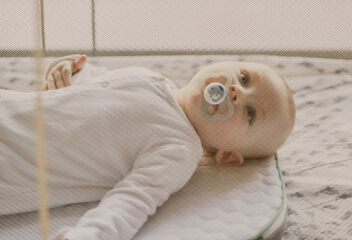Understanding Autism Signs in Babies: What Every Parent Should Know
As parents, it’s only natural to keep a close eye on our little ones, constantly observing their every move and milestone. When it comes to autism symptoms in babies, early detection is crucial for intervention and support. While it’s important to remember that every child is unique and develops at their own pace, being aware of certain signs can help us better understand our child’s needs.
Common Symptoms
1. [Social Interaction Challenges]
Lack of Eye Contact: Babies typically engage in eye contact, which is a vital component of social interaction. In babies with autism, there may be a noticeable avoidance of eye contact, making interaction appear distant.
Limited Social Smiling Most infants begin smiling socially by around six weeks of age. However, babies on the spectrum may show fewer social smiles or struggle to engage in reciprocal smiling.
2. [Communication Delays]
Delayed or Absent Response to Name: A typical milestone for babies is responding to their name. Babies with autism may not consistently respond when called, indicating potential communication delays.
Reduced Use of Gestures: Babies often use gestures to communicate their needs and interests. In babies with autism, there may be a lack of pointing, waving, or using other forms of body language to interact with caregivers.
3. [Repetitive Behaviors and Interests]
Repetitive Motions: Babies may display repetitive movements, such as rocking back and forth or hand flapping, which can be a sign of autism. These behaviors may appear soothing or serve as a way for the baby to express themselves.
Focused Interests: Some babies may show an unusual interest in specific objects or patterns, spending extended periods engaged with them while showing little interest in other toys or activities.
4. [Sensory Sensitivities]
Atypical Responses to Sensory Input: Babies may have heightened or diminished sensitivity to sensory stimuli. They might react strongly to loud noises or be indifferent to bright lights or certain textures.
5. [Limited Play Interaction]
Solitary Play Preference: While many babies enjoy interactive play with caregivers or peers, those on the autism spectrum may show a preference for playing alone or engage in activities that do not involve social interaction.
What to Do If You Have Concerns
Recognizing these signs in your baby can be concerning, but it is essential to remember that every child develops at their own pace. Not all children displaying one or more of these traits will be diagnosed with autism. However, if you notice several of these symptoms over time or have concerns about your child’s development, it is crucial to consult a healthcare professional.
Early intervention can provide support and resources that help children with autism develop skills for communication, social interaction, and daily living. Healthcare providers might recommend developmental screenings or refer you to a specialist for a comprehensive evaluation.
Conclusion
Being aware of the early signs of autism can empower parents and caregivers to seek help and support for their children as needed. By fostering an environment of understanding and proactive care, we can improve the quality of life for those affected by autism and promote healthier developmental trajectories. If you have concerns about your child’s behavior, do not hesitate to reach out to a healthcare professional for guidance and support.
